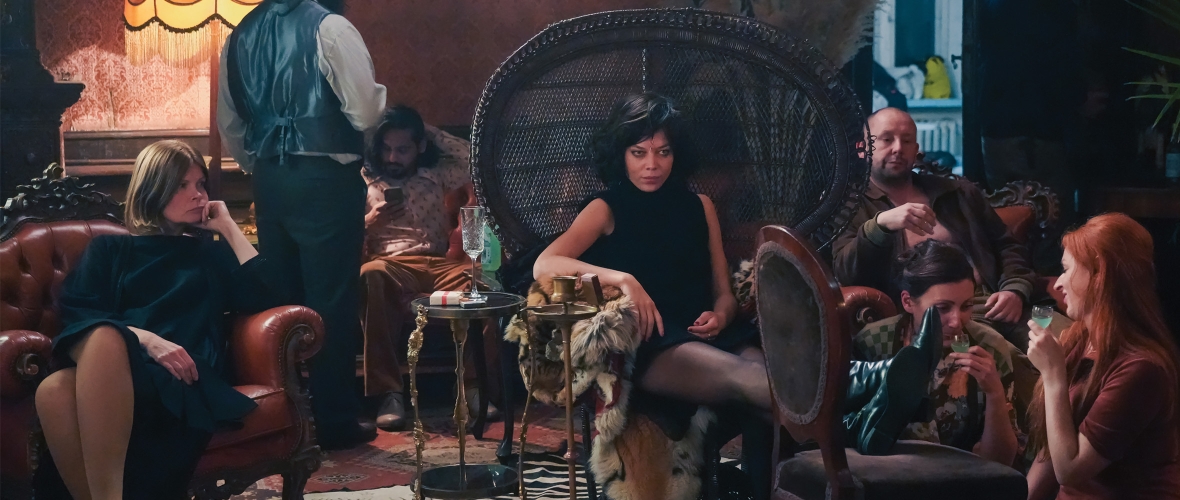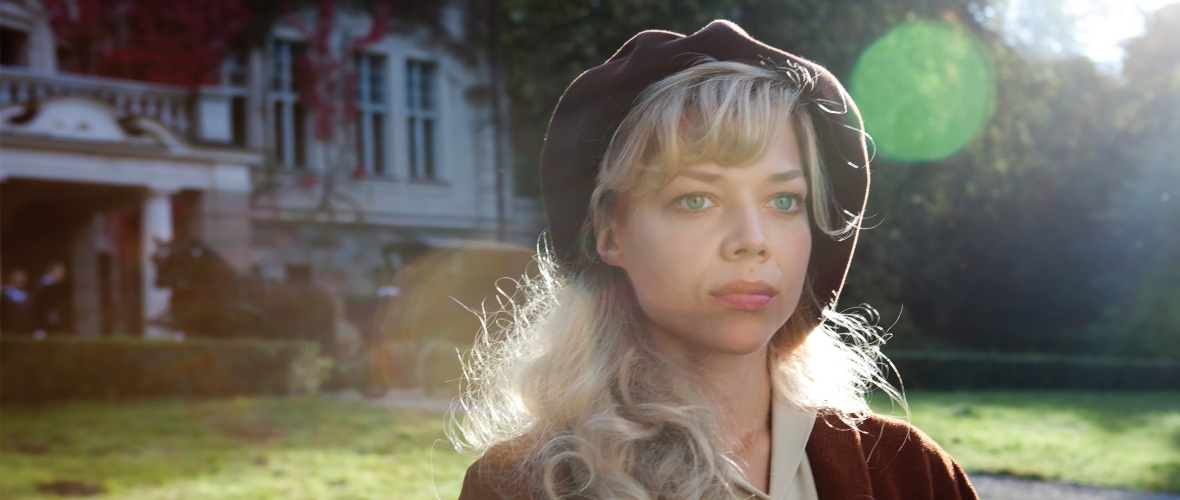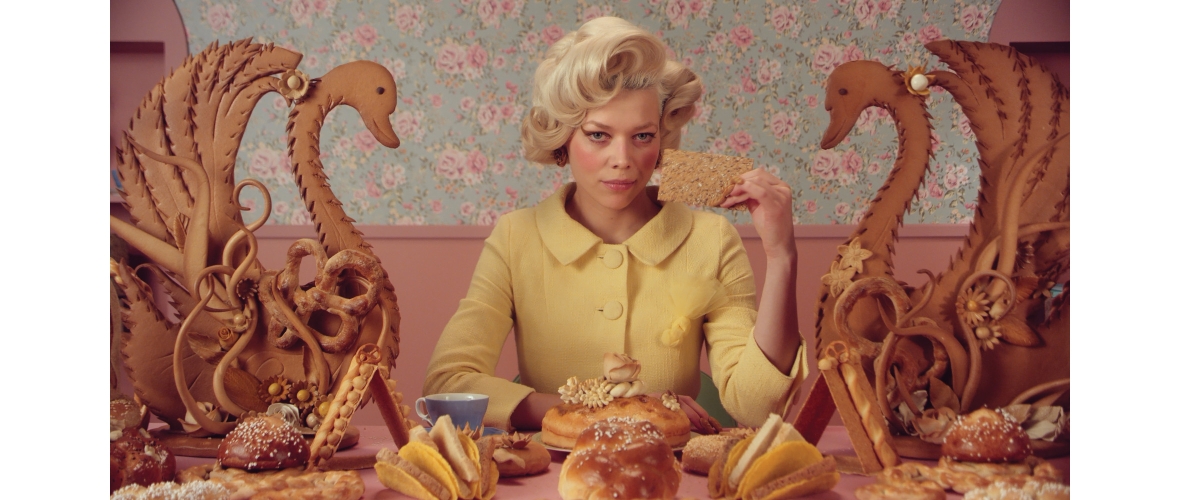Simona Kossak lived in the wilderness, and Gloria Kossak also surrounded herself with animals. How does Marianna Zydek connect with nature?
There’s definitely not enough of it in my life. Fortunately, I live in a green area, and when I have time, I go for long walks with my dog. Animals fascinate me. I have a cat who came to me on set, and I took her home, even though I never used to like cats. I really like her character and that she doesn’t let the dog dominate her. She’s also a great hot water bottle. [laughter] Because of my profession, I always have a whole range of emotions at my disposal, even in my personal life. When I feel overwhelmed, I look at her and admire how calm she is.
And your dog?
He teaches me responsibility. It’s a bit like having a child. I can’t take him everywhere, and I have to remember to walk him. I can see he needs the relationship with me. When I give him too little attention, he gets upset, barks more. Yesterday we went for a long walk and played together, so today he’s behaving differently. Looking at him, I realise we’re animals too. We’re governed by similar instincts, though we sometimes forget it.
You also get along well with people. You need it for your job as an actor but also for your side job – organising and hosting meetings with filmmakers at SPATiF. Have you always liked taking the initiative?
I think so. In my French-speaking middle school, I managed to convince half my class to take part in a theatre competition. I really wanted our performance to succeed, and at times I pursued that goal at all costs. I later learned that it’s not always worth it. The groups I led won those competitions, which was nice, but my work on those projects always came with a lot of stress. The Thursdays at SPATiF were similar. At first, the meetings were held weekly, and now I don’t know how I managed that. After all, I had to invite a guest, create a programme. Now, I improvise more, but back then, I would prepare for a long time because I wanted the talks to go perfectly. It was incredibly stressful. Now, we meet at SPATiF once a month.
What do these meetings give you?
When I was applying to college, I thought actors would have more control. After all, I had taken part in theatre competitions where we directed our own performances. So I was a bit disappointed when I realised that the trajectory of my career depended less on my efforts and more on how others perceived me and what opportunities they would offer. Thursdays at SPATiF were not my idea, but a proposal that filled the gap created by this clash with reality. I can decide what the meetings look like, which guests I invite and how the discussions go. I appreciate that apart from my profession, I have something else that gives me a sense of fulfillment.
You mentioned a French-speaking secondary school, and in one of your interviews, you also said that foreign languages are a passion of yours, alongside acting...
I attended a middle school where French was the medium of instruction, and then took a Spanish class in high school. I didn’t enjoy spending hours with books, but languages came easily to me, so these choices gave me more time for other things. When I picked that middle school, I hadn’t yet realised that learning French would open doors to a new level of communication with so many people. I realised this quickly, during my first exchange trip to France. Here’s another example from a different language. Once, while hiking in Spain with a friend on the Camino de Santiago, we took a break, it was really hot. An elderly woman passed by, smiled, and spoke to us in Spanish, and we responded. We started talking, and she invited us into her home, made breakfast, served coffee, showed us family photos, and shared her world with us. If we hadn’t spoken her language, we would’ve missed that experience. That, to me, is most precious.







